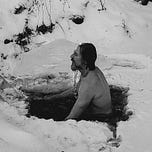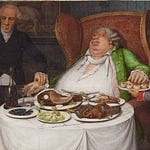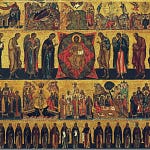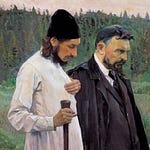In the Tabletop Book for Clergy, a comprehensive instructional manual on many practical aspects of ministry in the Orthodox Church, published in 1893 in Kharkov (present-day Ukraine), its author, Sergei Bulgakov, made the following note about bathing in ice water on Theophany:
In some places, there exists a custom to bathe in rivers (specifically, this bathing is for those who during the holy days [the period between Christmas and Theophany] wore costumes [a tradition common among the Slavs and somewhat reminiscent of Halloween], practiced divination, and did other such things, and superstitiously ascribe to this bathing the power to cleanse them from all of these sins). This custom cannot be justified as a desire to imitate the example of the Savior who immersed in water, or the example of Palestinian faithful who bathe in the Jordan at any time. In the East, it is safe for the faithful, because they do not have such cold and such freezing temperatures as we do. A belief in the healing and cleansing power of the water which has been sanctified by the Church on the very day of the Baptism of Christ also cannot be used to excuse this custom, since to bathe in the winter is to demand a miracle from God or to completely disregard one’s life and health.
Fast forward a century, and this practice is now ubiquitous in all of post-Soviet Russia and anywhere that post-Soviet immigrants have settled, including in the United States. Most of Bulgakov’s work is well-researched, reasoned, and argued, but this specific note seems to fall short of the quality standard maintained elsewhere in the book.
First, it must be said that Bulgakov as well as the many present-day detractors of Theophany cold plunges are absolutely correct - the practice of plunging in ice-cold water is not a Christian tradition or rite; but I am not aware of any claims to the contrary - not even from the least-knowledgeable adherents to this yearly custom. The same can be said about the custom of hanging stockings on Saint Nicholas Day, exchanging gifts on Christmas, or setting up Christmas trees in living rooms - none is a ritual of the Church, but arguing this point would be moot. However, it is obvious that the custom of cold plunging is connected to a very specific rite of the Church - that of the sanctification of natural bodies of water. If priests did not go out to rivers and lakes and did not pray for God to sanctify the water in holes cut in ice, no one would be jumping into those holes in “complete disregard of one’s life and health.” Who is right - Bulgakov in his concerns that peasants might catch a cold or the peasants who plunge in ice water after spending the twelve days of Christmas from the Nativity of Christ to Theophany in divination and wearing scary masks and costumes?
Listen to this episode with a 7-day free trial
Subscribe to Phroneo to listen to this post and get 7 days of free access to the full post archives.













